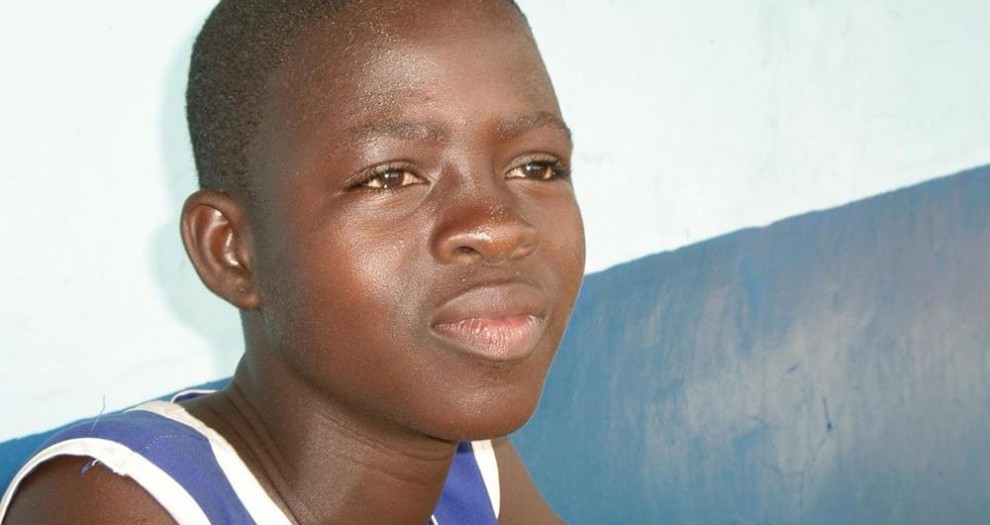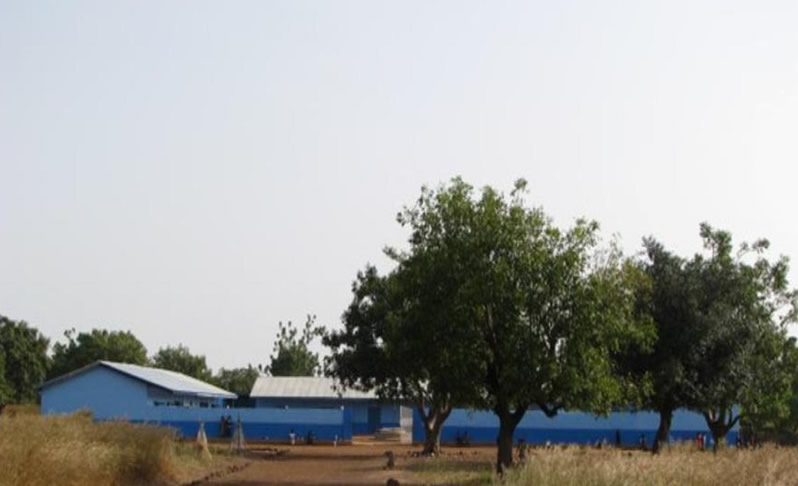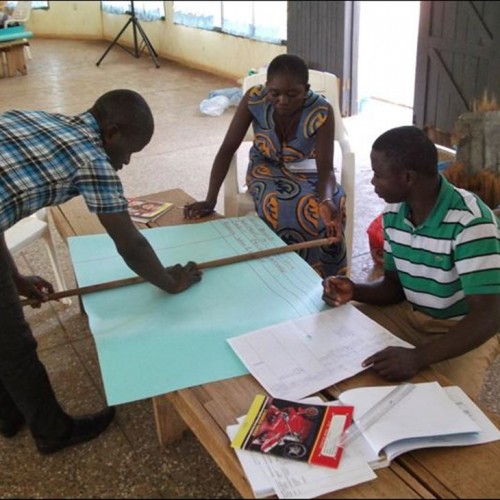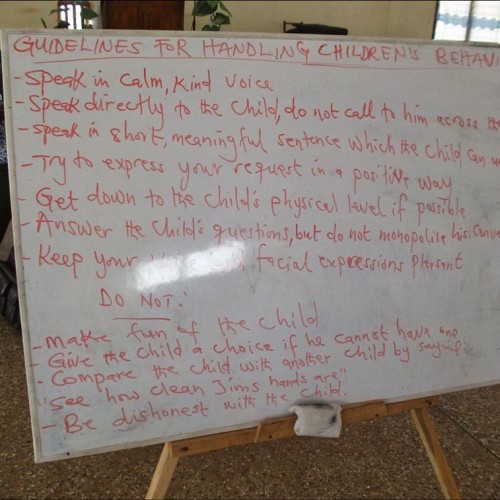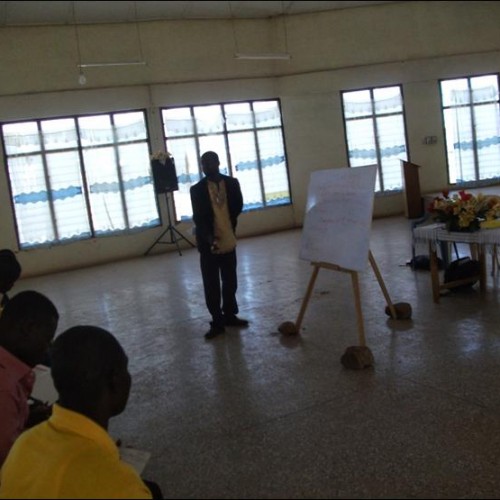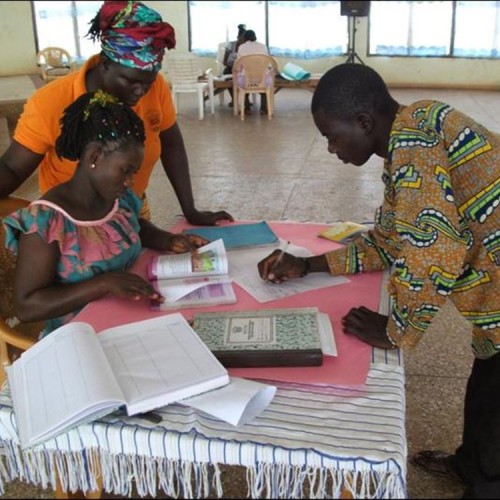Welcome to the online version of our Spring 2014 Newsletter. In this newsletter:
- Examinations!
- A visit to Ghana
- Shocking statistics
- A new school
- A new tipper truck
- Electricity
- Training for teachers
- Have your details changed?
- With gratitude
Examinations!
In the UK thoughts for many teenagers are turning, with a degree of trepidation, to summer exams. The national exams in Ghana are also taken in summer and this year (our 10th) the first pupils at Bagri School take their exams. In Ghana these are taken at the age of 14. Teachers and pupils are working hard and the teachers have been putting on extra classes in the evening.
Of course, our village pupils have no experience of these exams. Neither their parents nor any older siblings sat them. So on 20 February, at the invitation of the headteacher, the examination officer from the local education office talked to the pupils about the rules and regulations surrounding external exams.
We are often asked what will happen to the pupils once they have finished at the village school. From the start we have been clear that the main aim of education at our Christian schools has been to improve the lives of these desperately poor children rather than necessarily improving their job opportunities. (And, indeed, the difference between villages with one of our schools and those with no education is striking).
We are pleased, however, to be in a position for this first year to offer a number of scholarships to the most able children. This will allow them to attend the school in the local market town, Lawra, for a further three years. The cost for these scholarships is highest in the first year when registration fees have to be paid, as well as the purchase of a table and chair, uniform and resources. The cost drops in subsequent years (£90 each year, as compared to £300 in year 1).
A visit to Ghana
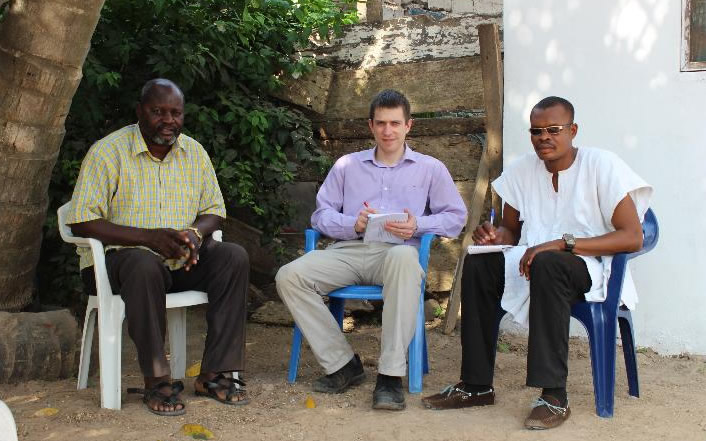
During January 2014 trustees visited Ghana (again kindly funded by a gift specifically for this purpose). As time was limited, we did not on this occasion make the long trek from the capital, Accra, to visit the schools in the north.
Instead we had intense and fruitful meetings with Pastor Charles Karbo (Programme Manager), Alfred Sogsuo (Assistant Programme Manager) and Pastor James Kori. We were kindly hosted at James Kori’s home, just outside Accra. The conversations were extremely helpful: it is hard to replace face-to-face contact. And we were thankful to be able to renew what have become close friendships.
Shocking statistics

A recent survey by the US government shows that over two thirds of household income in this region of Ghana is used on food. Sadly over 80% of children receive less than the minimum acceptable diet. In the villages where we work there is extreme poverty – and the children suffer among the worst.
A new school
During our visit we discussed the possibility of a further school. God willing, this will be our fifth school and has been made possible by a very kind legacy received at the end of 2013. We remain prayerfully concerned about villages with no education and little hope.
Subsequently things in Ghana have moved quickly. Pastor Charles Karbo’s daily report for 7 February 2014 includes the following:
“We met with the Director of Education of the Ghana Education Service. We debriefed her on our meeting with the trustees of Savannah Education Trust in Accra. During the discussion she told us about an application the people of Korh-Guo put in for a school and pleaded that we should help. We told her the village was already on the lists of areas that needed schools [compiled by the charity and the Education Office].”
Meetings have now been held with the villagers, who are desperate for a school for their children. The first part of building a new school is to drill a borehole. This gives the village a plentiful supply of clean water – and also water to aid construction. Building work is scheduled to start in April and the plan is for the school classes to start as soon as is possible. The village is about 10 miles east of Lawra.
We pray that the building work will proceed smoothly and that the school will prove a great benefit to the children, and to the whole community.
A new tipper truck
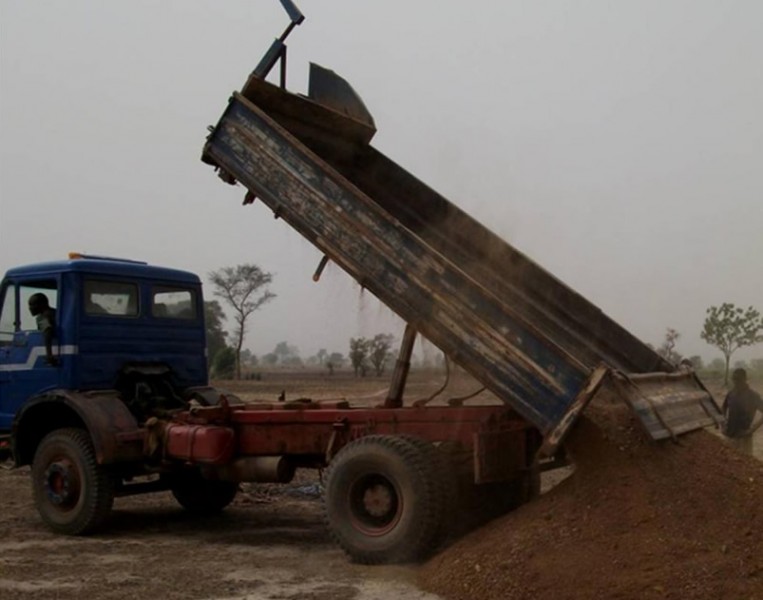
One of the most expensive costs for us in building a new school is the hire of a suitable vehicle to move sand and other materials to the building site. During the coming few years we hope, God willing, to be undertaking significant building work. This is both at the new school at Korh and also at our existing schools, with the continuation of the building work (particularly constructing Junior High Schools for pupils aged 11-14).
We therefore agreed during our meetings with the team in Ghana in January to purchase a tipper truck. A nearly new truck was procured from a dealer in Kumasi during March (after protracted negotiations). This is a significant cost to Savannah – nearly £30,000 – but will, we hope, repay our investment in the medium term.
Electricity
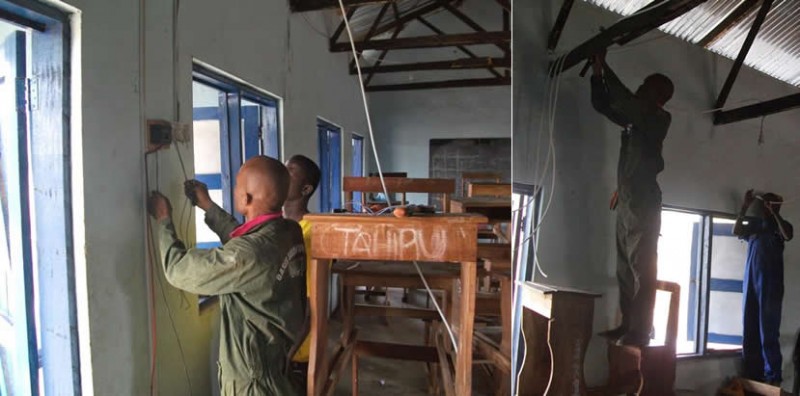
One of the many challenges that our village schools face is a lack of electricity. Clearly teaching a subject like IT (which is a compulsory part of the curriculum) is difficult without either equipment or electricity. An electricity supply would also be able to power fans to cool the classrooms during the hottest months and provide the opportunity to hold evening classes. We are currently working to provide electricity in each of the villages.
One interesting source of electricity is through solar energy: sunshine being one of the few plentiful resources in northern Ghana. Photovoltaic cells within solar panels harness energy from the sun and use it to generate electricity. Supporters may recall that in an early newsletter (Summer 2007) we indicated that we were investigating the costs of solar energy. At that time the logistics and costs were prohibitive. The costs have reduced significantly. This is partly because of advances in technology and partly because of a renewable energy law that was passed in Ghana during 2011. We recently agreed, as a trial, that solar energy might be used in the Junior High School in Bagri.
The solar company handles the entire assessment, installation and maintenance of the systems, including a year’s free warranty. The same solar system is already successfully in operation at the church building in Bagri. In most villages the only source of light is the kerosene lamp. But these are relatively expensive, can cause respiratory problems and, in any case, are not able to light a whole classroom.
Training for teachers
Teaching is tough in this part of the world. Salaries are low and often teachers (particularly those who have not been trained) do not have much more education than their students. Across our four schools we now have a large group of teachers, and this gives us the opportunity of bringing them together regularly to improve standards and aid morale at each school.
We have continued our policy of providing ongoing training for teachers, both at our schools and beyond. Recent workshops include one for teachers on assessing and reporting and one for our headteachers on some of the practical skills that are needed, for example managing a budget.
Textbooks
It is sobering to be reminded that pupils at village schools generally have to learn with hardly any textbooks. At the end of 2013 the charity purchased a number of the textbooks for our schools with funds which had kindly been provided specifically for this purpose. We have also received funds to provide Bibles and other Christian literature for use during lessons at the schools.
Have your details changed?
It is very useful if supporters can let us know if their postal address, email address or Gift Aid status changes. Any Gift Aid declaration you may have given us remains valid as long as you pay income tax or capital gains tax at least equal to the amount of tax the Trust will reclaim. Unless we hear from you we will assume that the information you have given us is correct. If any of your circumstances change, please do let us know.
With gratitude
We are grateful to God for all of the help and support that we have received. It will be apparent that we have reached an important and pivotal stage of our work in Ghana, with significant expenditure anticipated. We are joined by our friends in Ghana in thanking all of our kind supporters for their ongoing support of the work and for their prayers. We are extremely grateful. Without this support none of our activities would be possible and we constantly stand amazed at the kindness that is shown.

